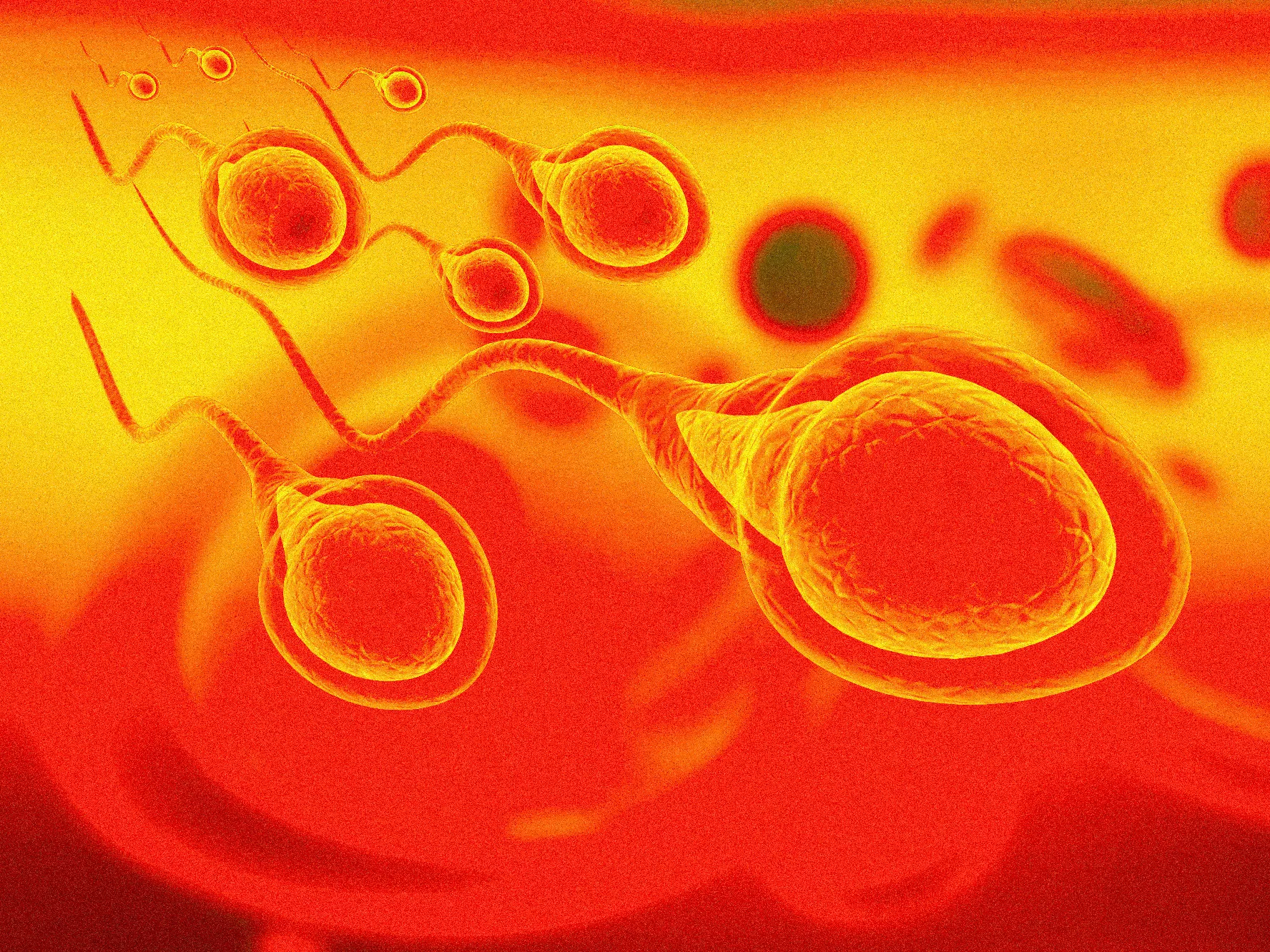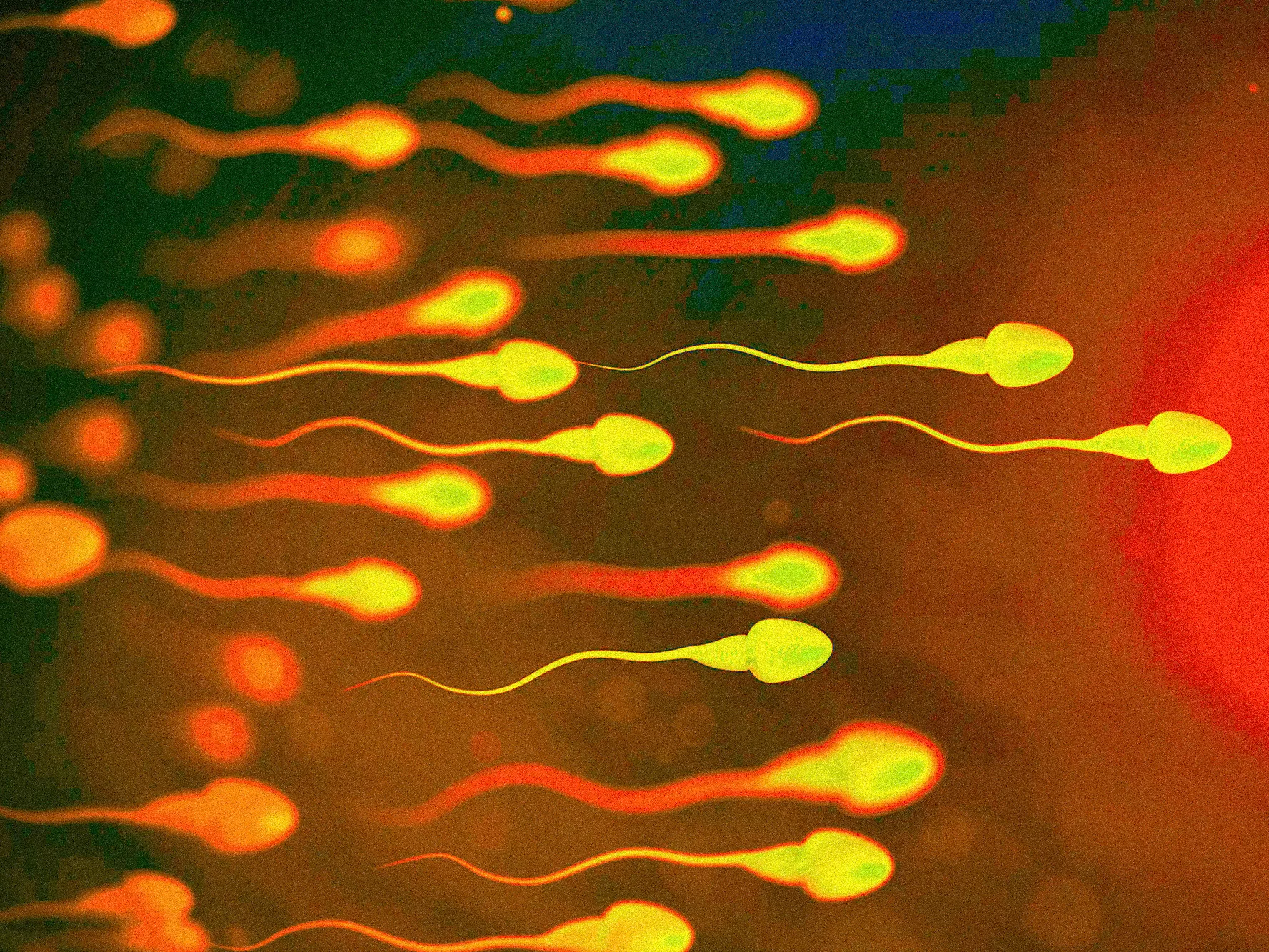Researchers found microplastics in testicles, and we aren’t sure what it does to our bodies yet. Evidence suggests it could be the cause of a lower sperm count.
2608
Sperm count is in decline globally and could cause a potential fertility crisis. A study found microplastics could possibly contribute to this.

Researchers found microplastics in testicles, and we aren’t sure what it does to our bodies yet. Evidence suggests it could be the cause of a lower sperm count.
Sperm count is in decline globally and could cause a potential fertility crisis. A study found what could possibly contribute to this decline in men worldwide, and it could be microplastics.
What are microplastics?
Microplastics refer to any plastic fragments smaller than 5 mm in length. These fragments can come from larger plastics breaking down into small pieces over time or plastics that are intentionally made small. Microplastics are one of the biggest environmental problems of our age. Due to their size and amount, microplastics are impossible to eliminate. We aren’t quite sure what they do to us yet, but some evidence suggests that microplastics could cause damage to our bodies over time, including our reproductive system.
Pollution has always been a significant public health issue.
Previous studies found that pesticides are one of the contributors to the decline in men's sperm count worldwide over the past 50 years. Chemical exposure is also a major issue for male infertility. Pollution has a big impact on global health, especially for the younger generation that has been exposed to more pollution since a critical period in childhood development. Changes in lifestyle, diet, and exposure to other types of pollution also suggest that these small factors are contributing to the decline of sperm count in men globally. We can’t be sure yet if microplastics would cause any harm to our health, but they could penetrate every part of our body, as found in the new study. There isn't much you can do to avoid microplastics, as they are already embedded in every part of our lives.
Researchers found microplastics in human testicles.
Microplastics are everywhere, including in our testicles. These microplastics could build up in our system over time, and we don’t really know what the health impact of having these microplastics in our body is yet. The Society of Toxicology published research that found the presence of microplastics in dog and human testicles.
The test was conducted by measuring the amount of microplastics in the testicles of men and pet dogs from autopsies. The results were shocking as the study found plastics that are used in plastic packaging, plastic bottles, and even the same plastics used in PVC piping in the testicle. samples. By dissolving organic tissues to separate solids from these samples, around 75% of what was left were plastics.
Microplastics could be stuck inside tissues and cause inflammation. This could interfere with how cells and organ tissues work, resulting in changes in organ functions. If this happens in your testicles, it could mean that your testicles might produce less sperm as the inflammation could block some of your sperm production. Exposure to plastics also puts you at risk of chemical exposure. According to Professor Xiaozhong Yu, the type of plastics found in the study could release chemicals that disrupt the function of our endocrine system and interrupt sperm production. Having plastic embedded in our system means these chemicals could leach into our body as long as they stay inside our tissues.
Not only could these microplastics cause changes in testicle functions, but the types of plastics found in the testicle samples are also known carcinogens. Though carcinogens don't always cause cancer, the more you are exposed to them, the higher your risk of developing cancer.
We cannot yet test if sperm count decreases with increased microplastic exposure in humans. However, results from tests run on dog testicles suggest this might be the case. We still need a lot more research to determine if microplastics are the main culprit of the decline in men's sperm count globally. This research might be just the beginning of a concerning health issue stemming from a type of pollution that we have never encountered before in human history. We cannot solve these problems unless there are policies and regulations controlling plastic pollution.
Add us on Line and stay in touch.
Many things can contribute to low sperm count.
There is some evidence suggesting that microplastics could interfere with how our cells work, but we don’t really know the effects of microplastics on our bodies that much yet. So we aren’t actually sure if microplastics are the main reason for low sperm count. There are a lot of factors contributing to this condition, such as:
- Hormonal issues
- Testicle injuries
- Other testicular conditions
- Side effects from medications
- Lifestyle choices, including smoking, drinking, substance abuse, etc.
These are just a few examples of what could be the root cause of low sperm count. Low sperm count could be a sign of an underlying health condition that needs medical attention. We suggest you get professional help, as the only way to know if you have a low sperm count is to do a semen analysis test. Speak to our doctor today to learn more about your sperm health.
PULSE Clinic Branches
![]() Thailand
Thailand
PULSE Clinic Silom Bangkok info.bkk@pulse-clinic.com Tel: +66 65237 1936 or WhatsApp
![]() or LINE official account
or LINE official account ![]()
PULSE Clinic Nana Bangkok info.bkk@pulse-clinic.com Tel: +66 95915 6385 or WhatsApp ![]() or LINE official account
or LINE official account ![]()
PULSE Clinic Nana2 Bangkok info.bkk@pulse-clinic.com Tel: +66 99426 6982 or WhatsApp
![]() or LINE official account
or LINE official account ![]()
PULSE Clinic Patong Beach, Phuketinfo.phuket@pulse-clinic.com Tel: +66 95261 5282 or WhatsApp
![]() or LINE official account
or LINE official account ![]()
PULSE Clinic Sukhumvit 37,info.bkk@pulse-clinic.com Tel: +66 92497 9353 or WhatsApp
![]() or LINE official account
or LINE official account ![]()
PULSE Clinic Asoke – Executive Health center Asoke, Bangkok info@eu-health.org Tel :+6664 742 6528 or WhatsApp
![]() or LINE official account
or LINE official account ![]()
PULSE Clinic South Pattaya info.bkk@pulse-clinic.com Tel :+66 62 828 7969 or WhatsApp
![]() or LINE official account
or LINE official account ![]()
PULSE Clinic North Pattaya info.bkk@pulse-clinic.com Tel :+66 62 828 7969 or WhatsApp
![]() or LINE official account
or LINE official account ![]()
PULSE Clinic Nimman Chiang Mai info.cnx@pulse-clinic.com Tel: +66 99479 7168 or WhatsApp ![]() or LINE official account
or LINE official account ![]()
PULSE Clinic Phuket Town, Phuket info.phuket@pulse-clinic.com Tel: +66 65237 1936 or WhatsApp
![]() or LINE official account
or LINE official account ![]()
![]() Malaysia
Malaysia
PULSE Clinic Bukit Bintang, Kuala Lumpur info.kl@pulse-clinic.com Tel: +60321102122, Whatsapp +601165388678
PULSE Clinic Bangsar, Kuala Lumpur info.kl@pulse-clinic.com Tel: +60321102122, Whatsapp +601165388678
PULSE Clinic George Town, Penang, info.pg@pulse-clinic.com +60138039693, Whatsapp +60138039693
Hong Kong
PULSE Clinic Central, Hong Kong info.hk@pulse-clinic.com Tel: +852 2389 8250
![]() Singapore
Singapore
PULSE Clinic Tanjong Pagar, Singapore info.sg@pulse-clinic.com Tel: +65 6974 59190 or WhatsApp
![]()
![]() Philippines
Philippines
PULSE Clinic Manila, Philippines info.ph@pulse-clinic.com Tel: +63 91712454970 or WhatsApp
![]() or LINE official account
or LINE official account ![]()
We’re here to help
Whatever you’re experiencing, you're not alone. PULSE Social Enterprise is here for any concerns and questions that you might have about your health.
From general wellness to mental well-being to sexual health, we will be sure to give you fast, reliable, and safe diagnosis, treatment, and consultation.
Trust PULSE CLINIC to take care of your health like other 45000 people from over 130 countries. We provide discreet professional service with high privacy. Here to help, not to judge.








